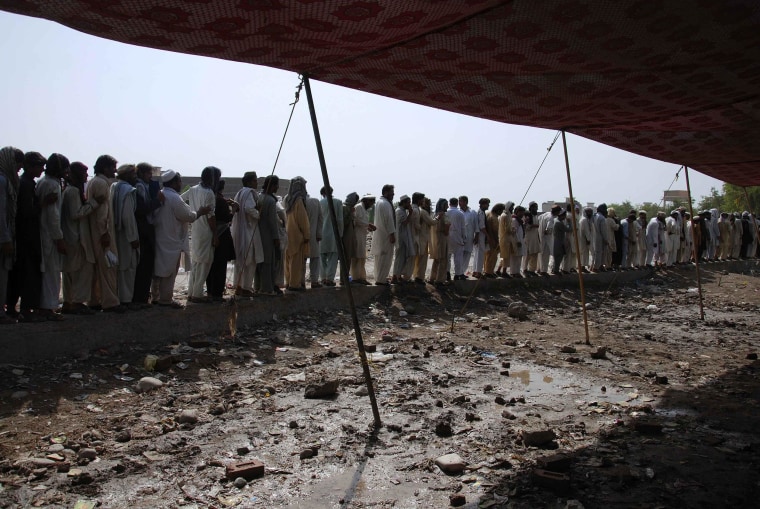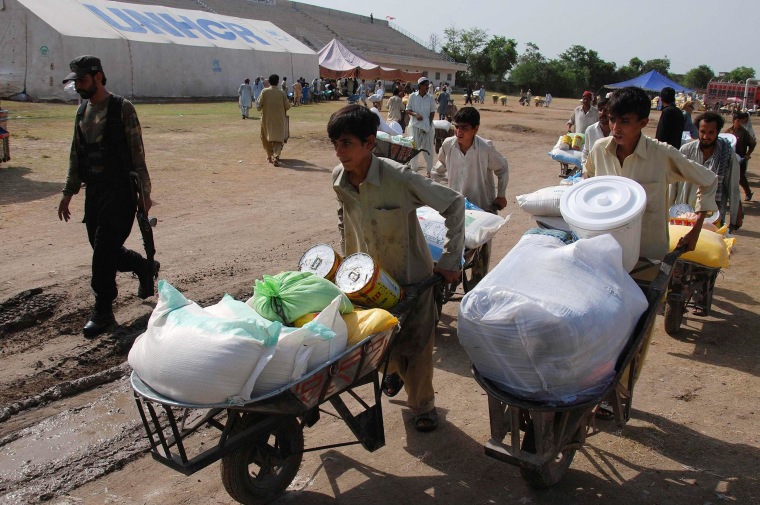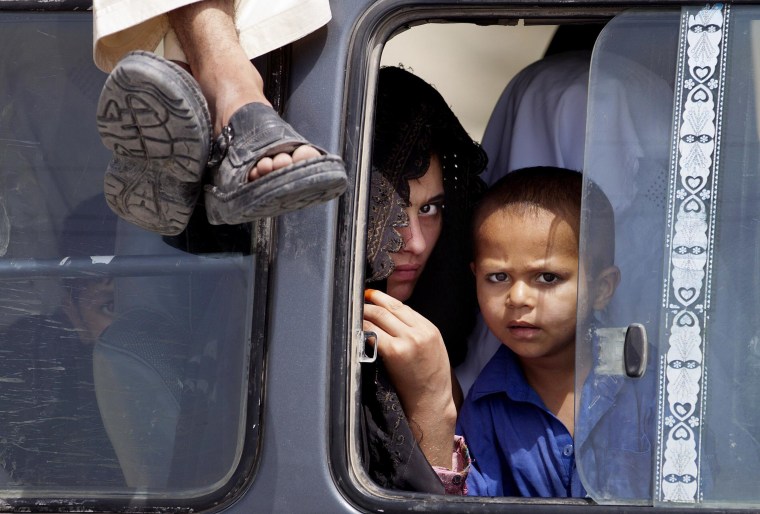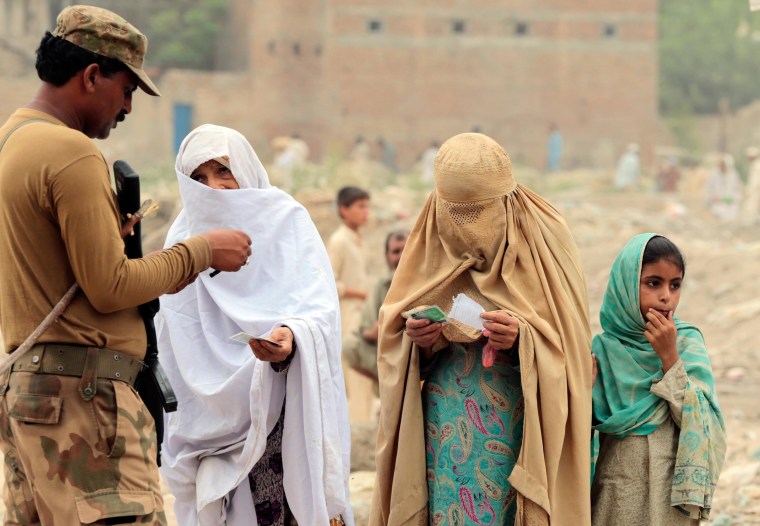BAKA KHEL, Pakistan – Naming a newborn baby is a joyful occasion for most families, but the moment was a bittersweet one for Khan clan.
Azizullah Khan’s named the newborn Zarb-e-Azb, which translates into “strike of the Prophet’s sword.”
Zarb-e-Azb is also the moniker given to the huge campaign the Pakistani military launched against militants in North Waziristan, a lawless area on Pakistan's border with Afghanistan. The offensive has already driven an estimated 1 million civilians from their homes.
Khan’s wife welcomed their bright-eyed newborn into the world on the floor of military-issued tent in the heart of a dusty and broiling refugee camp.
“This operation will get us rid of the people who had taken so much from us in Waziristan.”
“My family suffered too much. Then some of the people died on the way,” the 40-year-old said. “But I forgot all the hardship I had faced during the tough journey when I arrived in the camp and Allah Almighty gave me a son.”
Days earlier, Khan, his two wives, six children and elderly mother walked nine hours in scorching heat through mountainous countryside. The family and many of their fellow villagers took nothing with them except for clothes on their backs when aerial bombings of the town of Miranshah began. They left behind a homes, animals, farms and businesses.
Suffering has not ended for the villagers. Their camp housing about 250 families is built on a previously deserted patch of land. Large families have been forced to cram into single tents. There are no schools, and little food and water. Cultural norms make it taboo for females to be seen in public so women and girls are usually forced to sit inside broiling tents all day.

So why did Khan name his tiny son after a military campaign that has cost his family so much? While acknowledging that his son will daily remind him of the agonies his family has suffered, Zarb-e-Azb also represents hope that one day he and his neighbors will be free of the militant scourge.
“This operation will get us rid of the people who had taken so much from us in Waziristan,” he said.
North Waziristan has remained under the control of Taliban and al-Qaeda for more than a decade. They have imposed their harsh version of justice on the population, beheading more than 500 residents on charges of spying for the U.S. and Pakistan.
Khan’s days are still full of anxiety; he worries that his youngest will not survive the intense heat.
Local officials are struggling to provide shelter and food to the thousands of hungry and homeless. The government had set up a camp for the displaced people but only a small number –- 65 families -- have settled there because of the heat and lack of amenities.
Critics also allege that the administration of the camp is riddled with incompetence, bureaucracy and corruption.

Besides provision of basics like water and food and medicine, Pakistan announced it would pay the equivalent of $400 to each displaced family. However, a senior government official admitted to NBC News that only 4,917 families had received the cash grant.
The displaced complain that they are often forced to wait for days simply to register -- essential to receive further aid.
“I have been sitting in this line for the past two days only ... to confirm my registration,” complained Arab Gul from Shawa Tehsil region of North Waziristan.
The 47-year-old farmer said he and thousands others used to sit under under the scorching sun and then faced the brunt of heavy rain.
“I had to call my son to sit on my place when I needed to leave the line and eat something from a nearby roadside food stall. If I had not called him, the army soldiers, the police and paramilitary Frontier Constabulary would have not allowed him to sit in the line,” he complained.

Those who chose not to take shelter in the government-run camp also face great hardship.
Most people NBC News spoke to complained that getting cash handouts takes days. The process is also impenetrable to most because it requires them to read forms and handle SIM cards even though the majority cannot read or write.
While the military says it has driven out the insurgents, and killed 576 local and foreign militants during the operation launched on June 15, nobody knows when they'll go home.
Khan and other displaced people NBC News spoke to said they wanted to return as soon as possible, but also fiercely hoped the military would rid the region of all fighters once and for all.
"All of us would like to forget our suffering," Khan said. "But when we go back I hope my village and other villages in Waziristan will have been cleared of the militants."
